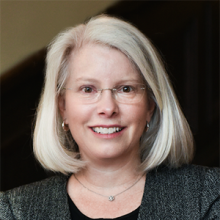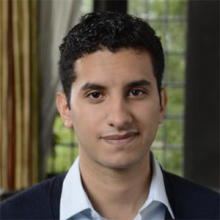Doctoral Dissertation Reorientation Funding awards support students in adapting research in response to the pandemic
By Anjali Anand
For researchers whose work relies upon on visiting research sites or archives, or interacting in-person with human subjects, travel and other safety restrictions implemented in response to the COVID-19 pandemic have up-ended plans, often those that were years in the making. In recognition of the significant impact these limitations have on doctoral students who are at the dissertation stage of their program, and with the generous support of the Division’s Advisory Council, the Division has awarded funding of nearly $150,000 to 46 students who are reorienting their projects to adapt to these circumstances.
“COVID-19 has disrupted many dimensions of social science research. For advanced doctoral students whose ability to complete their degree has been significantly challenged, these awards provide essential resources to adapt research agendas, innovate new approaches to their research questions, and continue forward in the rigorous tradition for which the University of Chicago is known,” said Amanda Woodward, Dean of the Division of the Social Sciences and William S. Gray Distinguished Service Professor of Psychology.
Through the initiative’s broad scope, the Division is supporting a variety of project reorientations. In some cases, students in lab-based social sciences redesigned their projects to focus on animal subjects or remote human subjects instead of in-person human participant research. Others whose research relied on in-person observation have reconceptualized potential data sources for their projects and, in some cases, shifted to online interviews. Those relying on travel to archives abroad have used the awards to hire local research assistants or archivists to digitize rare documents.
For Demmy Villalpando, a doctoral candidate in History, the onset of the pandemic cut short a Fulbright grant he had been awarded for developing a non-state centric framework for the study of indigeneity. His dissertation, which relies on the close study of a specific village in the Mexican state of Chiapas, required meticulous collection of archival documents for a range of time spanning nearly seventy-five years. He notes that nearly 22,000 pages of documentation, including legal documents pertaining to land disputes, local court cases, and correspondence, as well as important statistical documentation about local schools and notes from school community members, still remained to be investigated when he had to cut his trip to Mexico short.
The DRIF grant has allowed Villalpando to hire local research assistants who will perform the remaining archival work on his behalf by digitizing the documents he has yet to consult. He notes that the main benefit of this reorientation has been that he “can continue my archival research from the comfort and safety of my home. At the same time, working with research assistant and digitized copies allows me to have a more flexible schedule, since I don’t have to abide by any archive’s operational hours.” However, he acknowledges the losses associated with remote work, especially the inability to conduct exploratory archival work or personally follow up on promising leads.
Christy Brandly, a PhD candidate in Political Science, faced similar challenges as Villalpando, occasioned by the suspension of travel and the inability to visit archives in person. Brandly’s dissertation examines the role of the gentry family in both the political and literary worlds of nineteenth century Russia in order to develop a novel argument about the experience of liberalism in Russia through an affective lens.
“The archival method of research is vitally important to this dissertation project, as many of the texts in question – Russian thick journals, the personal correspondence of Russian authors, early drafts and notes for many of the family novels, etc. – are not available outside of Russia,” Brandly explains.
Like Villalpando, she notes that she did not need to change her project but rather the way in which she approaches her work. But she also notes the ethical contradictions of hiring research assistants to access archives on her behalf.
“Because the pandemic is not over, ethically it is difficult to ask graduate students in Russia to travel weekly to the archives for me. I am, of course, in conversation with my assistants about how best to incubate them from risk over the next 6 months and the costs we need to consider to that end. I would not have ventured to hire research assistants out-of-pocket precisely because I would not have had enough to build in these considerations into the wage rate.” Her funding has not only allowed her to continue her research with more or less the same design but also to consider the costs of protecting her research assistants.
In contrast to Villalpando and Brandly, Bronwyn Nichols Lodato, a PhD candidate in Comparative Human Development, works with human subjects as part of her research. “My mixed methods dissertation study focuses on how diverse, young adults make meaning of the transition-to-adulthood developmental phase as they negotiate their postsecondary trajectories (i.e., education and work) during and after the Great Recession,” she says.
Lodato’s dissertation required in-person interviews at specific sites, which have now been transitioned to virtual interviews. Her DRIF grant will allow her to hire interview transcribers and research assistants who will assist in coding the interviews she conducts over the phone or by Zoom. Lodato notes that despite the change in how she accesses interviewees, remote research has had an unanticipated benefit through her interaction with undergraduate research assistants.
“I am particularly excited about working with students to provide them with hands-on social scientific research experience that exposes them to the inner-workings of theoretically-motivated research studies,” she says. “This grant will allow my research to stay on track and in alignment with the original objectives of the study design.”
A faculty committee, under the auspices of the Division’s Social Sciences Research Center (SSRC), reviewed the proposals submitted in response to a July 2020 call for applications. The funding was made possible through the support of the Division’s Advisory Council.
“I thank the faculty review committee and SSRC team for their nimble and engaged review of these applications, especially in light of what were and are still evolving circumstances, and I am grateful to members of the Council who rapidly and generously supported this need,” said Woodward. “I am also excited to see where these students, as the next generation of leading scholars in the social sciences, take their research endeavors.”
 THE UNIVERSITY OF CHICAGO
THE UNIVERSITY OF CHICAGO




